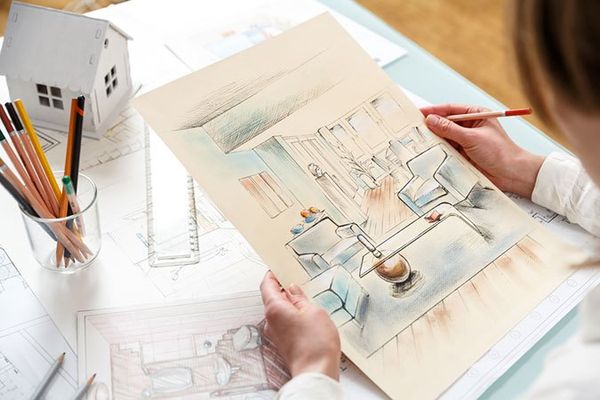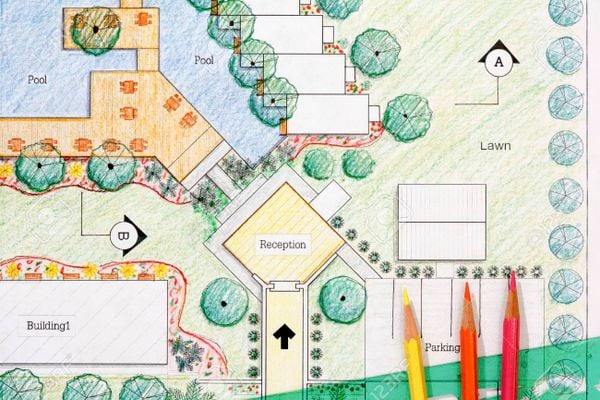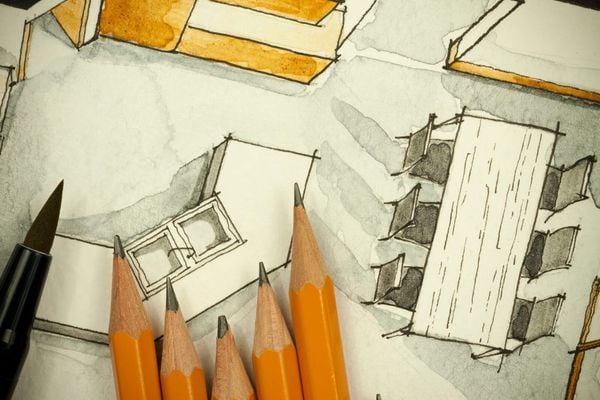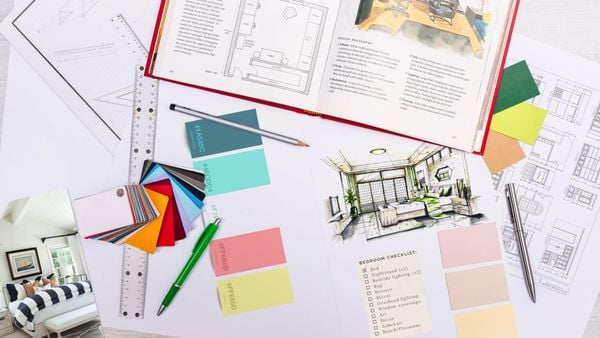Maybe you have a pool or patio project that's bigger than you can handle, and you need to contact a professional. Perhaps you or a relative love to work with plants, along with designing and building things, so much that one of you wants to pursue an education in landscape architecture or design.
So what is the difference between landscape architects and landscape or garden designers? Apparently, more than you may realize.
Landscape Architects

To legally call yourself a landscape architect, you must have a bachelor's and/or master's degree in landscape architecture from a university and be licensed by the state in order to design and work on landscape projects. Traditionally, they attend colleges accredited by the American Society of Landscape Architects (ASLA) and have passed the required exams to become licensed. A good and reputable landscape architect has experience or has the training to work with challenging issues in both commercial and residential sites, including:
- Steep slopes
- Retaining walls
- Irrigation and drainage systems
- Designing outdoor structures
- Solving elevation problems
- Designing or giving advice on where to place service lines, entries, driveways, and parking areas.
Licensed landscape architects plan and design public outdoor spaces, such as parks, campuses, gardens, cemeteries, commercial centers, resorts, transportation facilities, and waterfront developments. They also design and plan the restoration of natural places disturbed by humans such as wetlands, stream corridors, mined areas, and forested land. An education in and respect for historic landscapes and cultural resources allows landscape architects to work on preservation planning projects for national, state, and local historic outdoor sites and areas.
Landscape architects will be employed in private, public, and academic organizations.
Landscape and Garden Designers

The primary distinction between landscape architects and landscape designers is that designers usually work on smaller residential projects. While some landscape designers may have training equivalent to a landscape architect―especially if they have an undergraduate-or-higher degree in landscape architecture ―they do not have the state license, which is a requirement.
Some landscape designers are self-taught, but most have taken courses at a college, university, through an extension or certificate program, or online. In other words, you can't suddenly wake up one day and just decide to call yourself a landscape designer.
Most garden designers work with the soft stuff: plants. Some landscape or garden designers may have experience with hardscape, especially in drought-prone regions (like California and Nevada) where pebbles and bark are used as often as succulents and natives. But to do any actual earth-moving construction, wall building, or electrical work, a licensed landscape contractor needs to be brought into the project.
What Is Hardscape?
Hardscape involves the non-living parts of landscaping, such as paved pathways, retaining walls, and patios. Some common hardscape materials include bricks, flagstones, concrete, and metal.
When you consult a landscape designer, you will have a discussion or interview about the project. Usually, the designer will show up at your home, look at the yard, take photos, and ask about preferences in plants, garden maintenance, budget, etc. The designer will then create a plan view drawing and plant list. Depending on how the designer works, he might visit local nurseries with you, make suggestions or help you shop for materials and furnishings, and do actual plant placement. From there, she will make suggestions for another landscaping contractor or professional to do the physical work, which might include excavating an existing garden and hardscape, building patios and decks, and installing plants.
An Association for Landscape Designers
The group, the Association of Professional Landscape Designers (APLD), was incorporated in 1989. It encourages that members adhere to a code of professional standards, actively participate in continuing education, and stay current with state-of-the-art developments and trends in the landscape design field. A certification program is offered to members and is based on built or completed projects that provide professional recognition to designers who can pass a peer review program. Through its website, the APLD offers consumers access to trained designers in their region who are members of the APLD.
........................................
* Quý phụ huynh và các bạn học sinh quan tâm và cần tư vấn thêm thông tin chi tiết liên quan đến tâm lý, hướng nghiệp, du học các nước, học bổng, visa,... Xin vui lòng để lại thông tin bên dưới. Các chuyên viên của KEYSKILLS sẽ liên hệ lại với quý khách trong thời gian sớm nhất.
*Địa chỉ: Lầu 5, 74C Nguyễn Văn Cừ, P.Nguyễn Cư Trinh, Quận 1
*Hotline: 096 269 1068 - 086 611 6068 (zalo/viber)
*Fanpage: KeySkills ; English for Career; Ba mẹ ơi, con chọn nghề gì? ; Cha mẹ đồng hành cùng con chọn nghề tương lai












